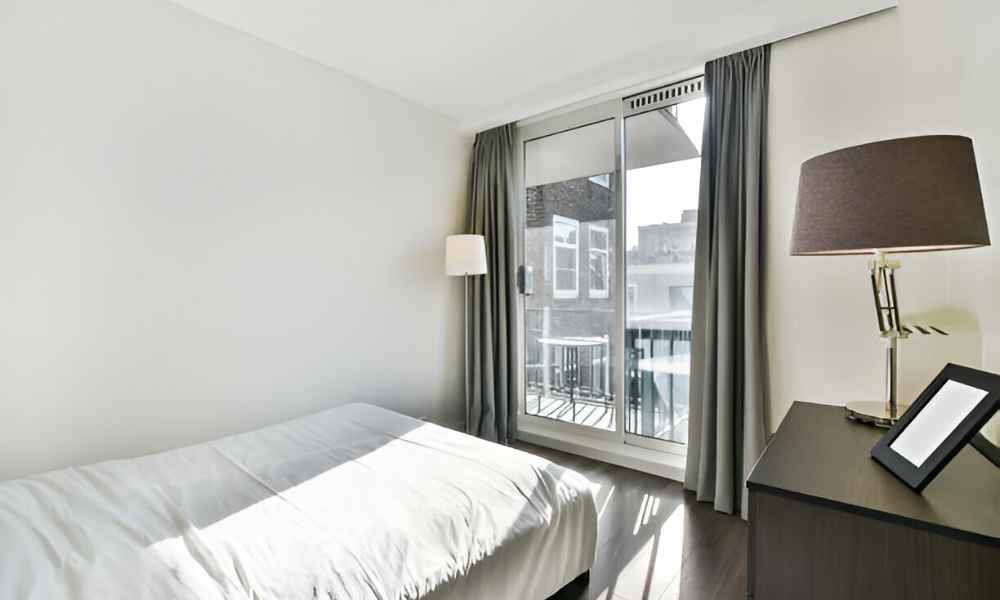Are you tossing and turning at night, wondering, “Why is my bedroom so hot?” You’re not alone in facing this uncomfortable dilemma. Many factors, from insulation issues to the placement of your furniture, can transform your peaceful retreat into a sweltering sauna. In this article, we’ll delve into the common causes behind excessive heat in bedrooms and provide practical solutions to help you reclaim the cool, restful environment you deserve. Stay with us as we explore how to enhance your bedroom’s climate effectively, ensuring your nights are as cool as they are restful.
Insulation and Ventilation Issues
One of the primary reasons your bedroom may feel like a furnace is due to inadequate insulation and ventilation. Poor insulation allows heat to seep in during the summer and escape during the winter, disrupting your room’s ability to maintain a comfortable temperature. Additionally, insufficient ventilation exacerbates this issue by trapping warm air inside and preventing a natural cooling flow throughout the room. Ensuring proper insulation and enhancing airflow can dramatically improve your bedroom’s temperature balance, making it a more comfortable and inviting space regardless of the season. Investing in these aspects of home maintenance is crucial for a cooler, more enjoyable bedroom environment.
Window Exposure and Sunlight
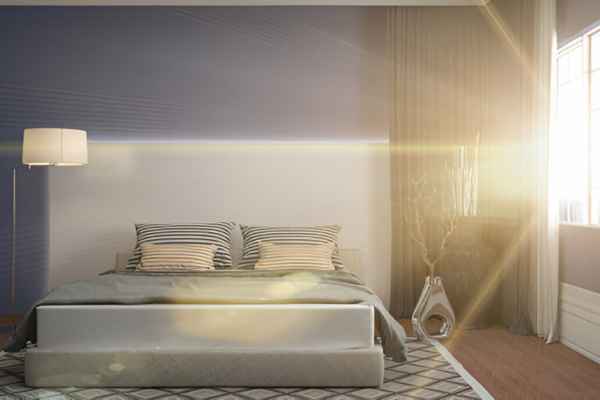
The position and size of your bedroom windows play a crucial role in how warm your room becomes, particularly if they face the sun. Large windows or those directly exposed to sunlight can significantly increase indoor temperatures, making your space uncomfortably hot. To combat this, consider installing thermal curtains or applying tinted window films. Thermal curtains are designed to block heat, keeping your room cooler, while tinted films reduce glare and prevent the sun’s rays from heating your space. Both solutions not only help regulate your bedroom’s temperature but also contribute to energy savings by lessening the need for air conditioning.
Electronic Devices and Appliances
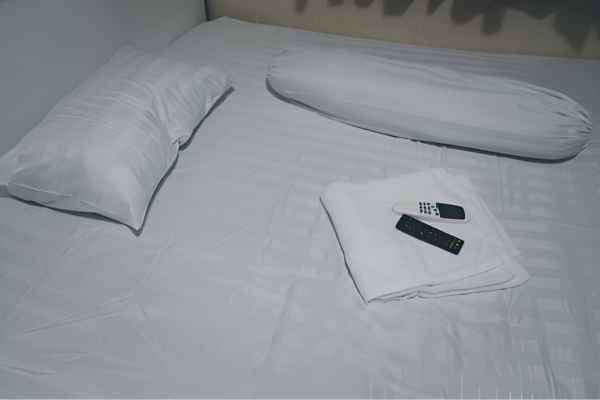
Electronic devices and appliances are often overlooked culprits contributing to the heat in your bedroom. Common items like televisions, computers, and even smaller gadgets constantly emit warmth while in use. To mitigate this heat source, consider utilizing timers to limit their operation to necessity only, thereby reducing the heat output during the night. Additionally, strategic placement can play a significant role; ensure these devices are positioned in a way that doesn’t obstruct airflow and possibly near ventilation to disperse the heat more effectively. Adopting these practices can significantly cool your sleeping environment, leading to a more comfortable and restful night’s sleep.
Improper HVAC System Design or Functionality

A common culprit for an overly warm bedroom is an improper HVAC system design or functionality. If your system is too small for your space or not functioning correctly, it may struggle to adequately cool your room. This often leads to uncomfortable sleeping conditions and increased energy costs. To prevent this, it’s crucial to conduct regular maintenance checks to ensure your system operates at peak efficiency. Additionally, scheduling annual inspections with a professional can help identify and rectify any issues before they escalate. Addressing these HVAC concerns not only cools down your bedroom but also enhances the overall efficiency and longevity of your system.
Room Layout and Furniture Arrangement
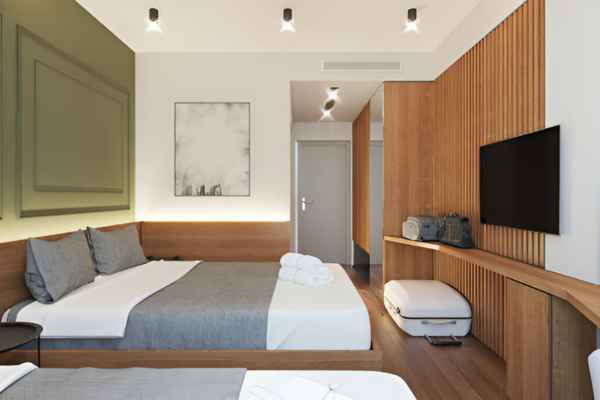
The layout of your bedroom and the arrangement of your furniture can significantly influence the temperature. Bulky furniture pieces placed near or against air vents, windows, or doorways can obstruct the natural flow of air, leading to hot spots and uneven temperatures within the room. To enhance air circulation, consider rearranging your furniture. Ensure that larger items like beds, dressers, and desks do not block vents or windows. Optimal placement involves allowing open pathways for air to move freely. This simple adjustment not only aids in maintaining a cooler atmosphere but also promotes a more balanced distribution of air throughout your bedroom, making it a more comfortable space to unwind.
Material and Fabric Choices

Choosing the right materials for your bedding and decor plays a pivotal role in maintaining a comfortable bedroom temperature. Certain fabrics, like polyester and silk, are known to trap heat, making your sleeping environment uncomfortably warm. Opting for breathable materials such as cotton, linen, or bamboo can significantly improve air circulation around your body and help regulate the room’s temperature. These fabrics allow for better ventilation, ensuring that heat does not accumulate during the night. By selecting the appropriate materials for your bedroom setup, you can create a cooler and more inviting sleep space, enhancing your overall comfort and the quality of your rest.
Seasonal Changes and Environmental Factors
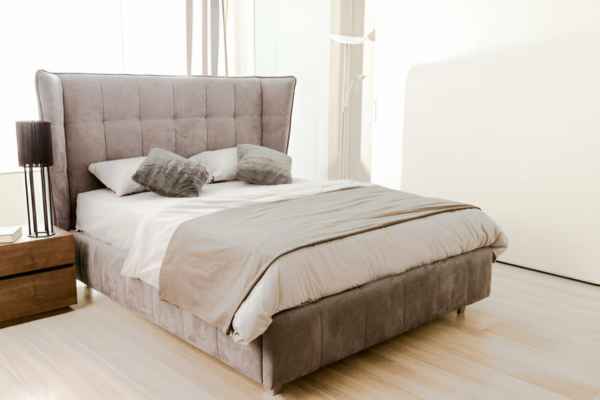
Seasonal changes significantly influence the temperature of your bedroom. As the external climate shifts from the chill of winter to the heat of summer, indoor temperatures naturally tend to rise. This seasonal variation can make your bedroom uncomfortably warm, particularly during heatwaves. To counteract this, consider using blackout curtains to block intense sunlight during the summer and thermal drapes to retain heat in the winter. Additionally, switching to breathable cotton sheets in the warmer months and heavier, insulated bedding during cooler times can help maintain a comfortable bedroom environment year-round. These simple adjustments ensure your bedroom adapts seamlessly to the changing seasons, offering you comfort regardless of the weather outside.
Professional Solutions
If your bedroom feels uncomfortably warm, consulting with HVAC professionals or interior designers can provide tailored solutions to cool down your space effectively. These experts can assess your home’s layout and ventilation system to pinpoint the root causes of heat buildup. Additionally, investing in new technologies, such as smart thermostats or advanced insulation materials, can significantly enhance your room’s climate control. Smart thermostats optimize your home’s temperature automatically, while upgraded insulation helps maintain a consistent indoor environment. Together, these professional solutions ensure your bedroom remains a comfortable sanctuary, irrespective of the external temperatures.
FAQs On “Why is My Bedroom so Hot?”
1. What are the most common reasons for a bedroom to get too hot?
✅ Common causes include poor ventilation, excessive sunlight exposure through windows, inefficient insulation, and heat from electronic devices.
2. How can window treatments help cool down a hot bedroom?
✅ Installing blackout curtains, reflective blinds, or solar window films can block or reflect sunlight, significantly reducing heat accumulation during the day.
3. Can the placement of furniture affect bedroom temperature?
✅ Yes, furniture that blocks air vents or restricts airflow can trap heat in the room. Rearranging furniture to improve air circulation can help reduce the room’s temperature.
4. What role do smart thermostats play in managing bedroom temperature?
✅ Smart thermostats can optimize your home’s heating and cooling schedule based on your habits and preferences, maintaining a cooler bedroom environment more efficiently.
5. Is it worth upgrading the insulation in my bedroom?
✅ Upgrading insulation can be a significant improvement, especially if your bedroom is prone to heat due to poor insulation. It helps maintain a consistent temperature and reduce energy costs.
Conclusion
Understanding the reasons behind the question, “Why is my bedroom so hot?” can be the key to unlocking a cooler, more comfortable sleeping environment. From enhancing insulation to adjusting room layouts and exploring smart thermostat technology, there are numerous solutions to effectively tackle this common issue. Implementing these strategies can significantly improve your bedroom’s climate, ensuring restful sleep and better overall comfort. Remember, a cool bedroom not only promotes better sleep but also enhances your overall well-being. Don’t hesitate to seek professional advice to address specific challenges and optimize your space for ultimate relaxation.

